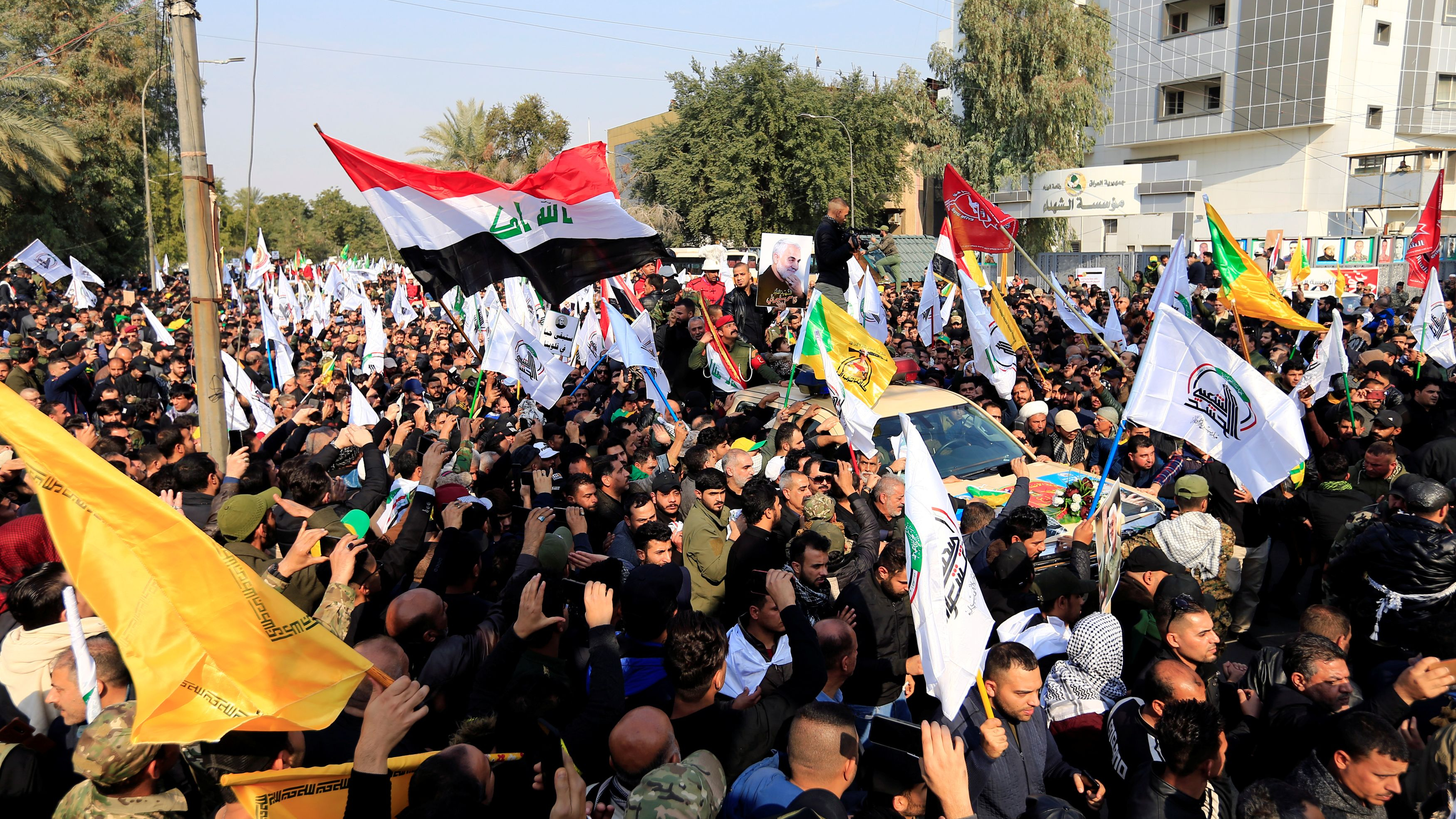
Mourners attend the funeral of the Iranian Major-General Qassem Soleimani, top commander of the elite Quds Force of the Revolutionary Guards, and the Iraqi militia commander Abu Mahdi al-Muhandis, who were killed in an air strike at Baghdad airport, in Baghdad, Iraq, January 4, 2020. /Reuters Photo
Mourners attend the funeral of the Iranian Major-General Qassem Soleimani, top commander of the elite Quds Force of the Revolutionary Guards, and the Iraqi militia commander Abu Mahdi al-Muhandis, who were killed in an air strike at Baghdad airport, in Baghdad, Iraq, January 4, 2020. /Reuters Photo
Thousands of mourners chanting "America is the Great Satan" marched Saturday in a funeral procession through Iraqi capital Baghdad for Iran's top general and Iraqi militant leaders killed in a U.S. airstrike.
Iraqi Prime Minister Adel Abdel Mahdi attended the procession for Iranian commander Qasem Soleimani and Iraqi paramilitary chief Abu Mahdi al-Muhandis, both of whom were killed in a U.S. drone strike in Baghdad airport the previous day.
The prime minister joined Muhandis associate Hadi al-Ameri, Shiite cleric Ammar al-Hakim and others in a large crowd accompanying the coffins.
Iran's supreme leader Ayatollah Ali Khamenei and President Hassan Rouhani paid separate visits to Soleimani's family at their home on Friday to offer their condolences over his death.
Soleimani will be laid to rest on Tuesday in his hometown of Kerman as part of three days of ceremonies across the country, according to a statement posted on the Revolutionary Guard's website.
Muhandis was the deputy commander of Iraq's Popular Mobilisation Forces (PMF), an umbrella body of paramilitary groups. The PMF is planning an elaborate funeral procession for both men and the others who died with them.
Thousands of mourners chanted "Death to America," and many took to the streets of Tehran and other cities across Iran on Friday to protest the U.S. attack.
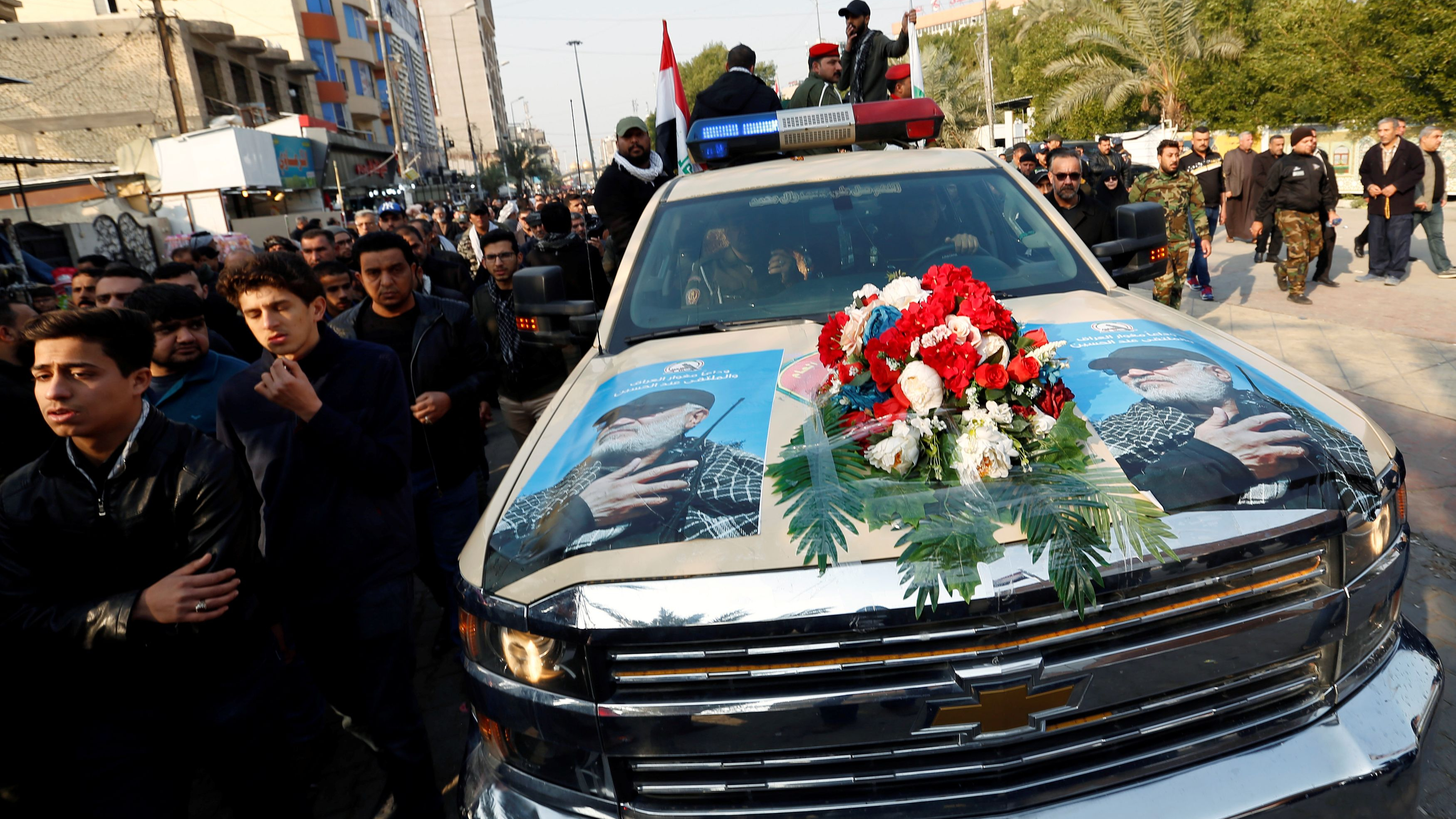
Mourners attend the funeral of the Iranian Major-General Qassem Soleimani and the Iraqi militia commander Abu Mahdi al-Muhandis in Baghdad, Iraq, January 4, 2020. /Reuters Photo
Mourners attend the funeral of the Iranian Major-General Qassem Soleimani and the Iraqi militia commander Abu Mahdi al-Muhandis in Baghdad, Iraq, January 4, 2020. /Reuters Photo
NATO has suspended a training mission in Iraq, an alliance spokesman said on Saturday.
"The safety of our personnel in Iraq is paramount," acting NATO spokesman Dylan White said. "We continue to take all precautions necessary. NATO's mission is continuing, but training activities are temporarily suspended."
Earlier on Saturday, an Iraqi paramilitary group said another airstrike north of Baghdad killed six people, and the Iraqi state television says it was an American strike, but the U.S.-led coalition has denied the claim.
The funeral took place a day after U.S. President Donald Trump insisted he was not seeking war with Iran.
As Tehran promised "severe revenge" for the killing by U.S. forces, Trump said he approved the strike on Soleimani because the Iranian "was plotting imminent and sinister attacks on American diplomats and military personnel."
Live: Latest reaction to Soleimani killing
Profile: Who was Qasem Soleimani?
Sixty-two-year-old Soleimani, head of the elite Quds Force, was killed by a missile fired from a U.S. drone when he and others accompanying were in cars traveling near Baghdad's international airport, according to U.S. officials. Five Revolutionary Guards were also killed, along with five members of a pro-Iranian paramilitary force in Iraq, the Hashed al-Shaabi.
China and other countries have appealed for restraint to be exercised in the wake of the killing.
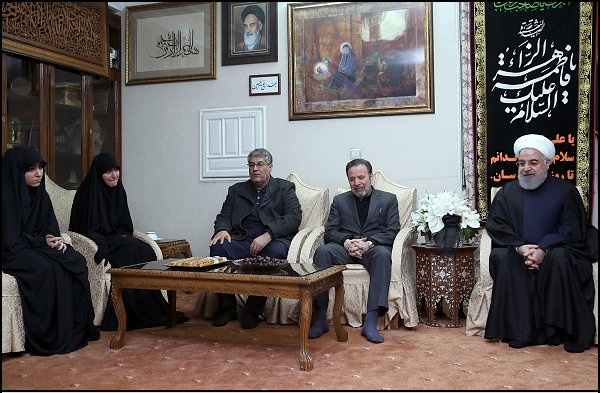
Iranian President Hassan Rouhani visits the family of the Iranian Major-General Qasem Soleimani at his home in Tehran, Iran, January 4, 2020. /Photo via Reuters
Iranian President Hassan Rouhani visits the family of the Iranian Major-General Qasem Soleimani at his home in Tehran, Iran, January 4, 2020. /Photo via Reuters
What has Trump said?
Trump, speaking from his Mar-a-Lago resort in Florida, said Soleimani was "terminated" when he was on the verge of attacking U.S. diplomats but insisted that Washington is not seeking to topple Iran's government.
"Soleimani was plotting imminent and sinister attacks on American diplomats and military personnel, but we caught him in the act," Trump said, without providing evidence for the claim.
Soleimani "killed or badly wounded thousands of Americans over an extended period of time, and was plotting to kill many more...but got caught!" Trump tweeted on Friday. "He should have been taken out many years ago!"
02:46
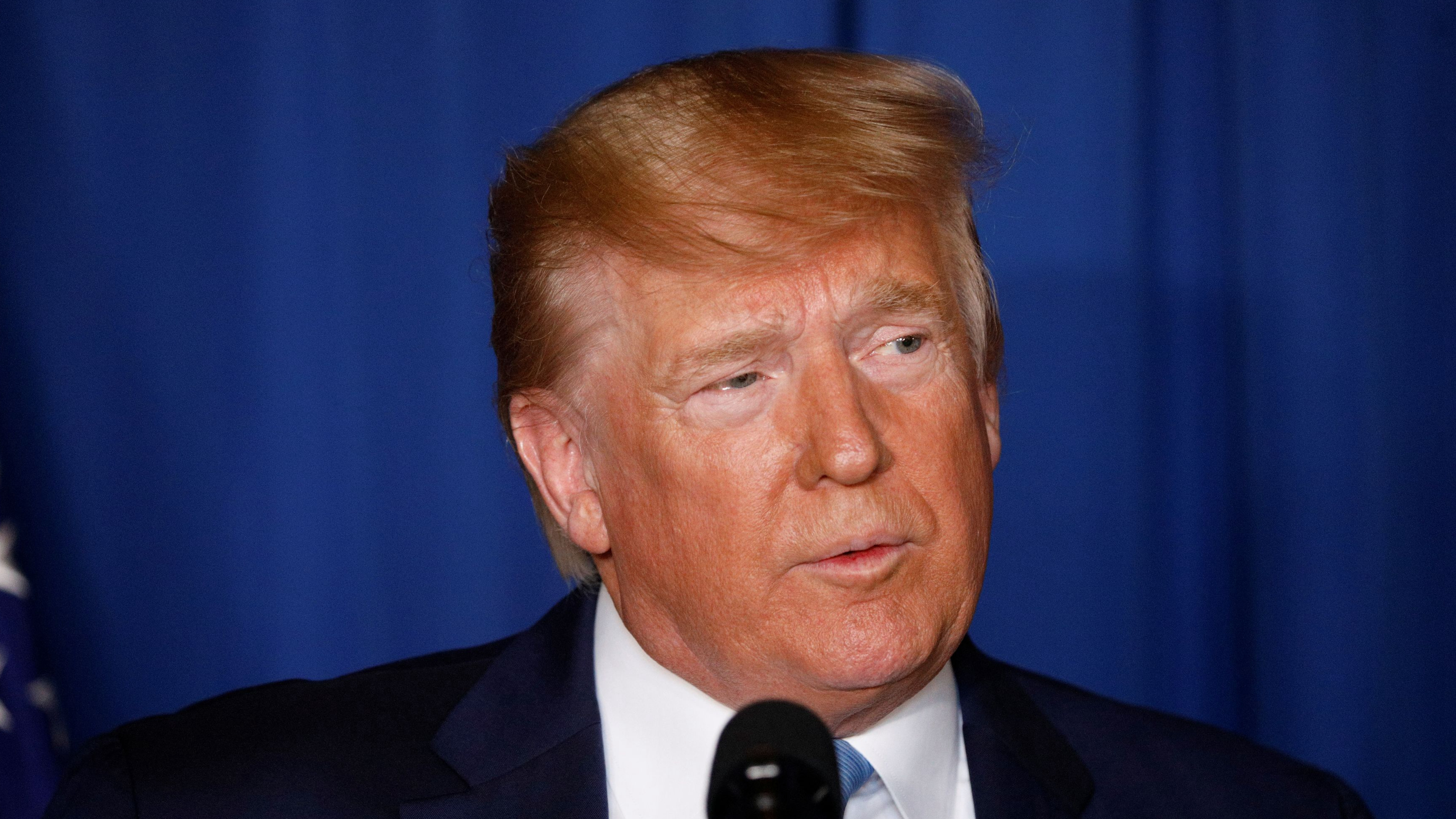
National Security Advisor Robert O'Brien told reporters the intelligence indicating the Iranian general was planning attacks against U.S. citizens was "extraordinarily sensitive.”
Trump, who has adopted a hardline approach to Iran since taking office, attempted to lower tensions by insisting that he does not want war.
"We did not take action to start a war," he said, adding, "We do not seek regime change."
How many U.S. troops are being deployed?
Trump, who has repeatedly claimed to be pulling U.S. troops out of conflict zones, on Friday sent more soldiers to the Middle East.
A Pentagon official said 3,000 to 3,500 troops from the 82nd Airborne Division's Global Response Force, which had already had sent hundreds of reinforcements earlier this week after protests at the U.S. embassy in Baghdad, will go to Kuwait.
Some 14,000 other troops have already been deployed as reinforcements to the Middle East this year, and the U.S. already had around 60,000 military personnel in the region.
How has Iran reacted?
Iran reacted with fury to the death of Soleimani, often referred to as the country's second most important leader. On Friday, Tehran told the United Nations Security Council that it reserves its right to self-defense under international law after the killing.
Supreme Leader Ayatollah Ali Khamenei vowed to avenge Soleimani's death. "A severe retaliation awaits murderers who have the blood of Soleimani and that of other martyrs on their wicked hands from last night's incident," he said in a statement.
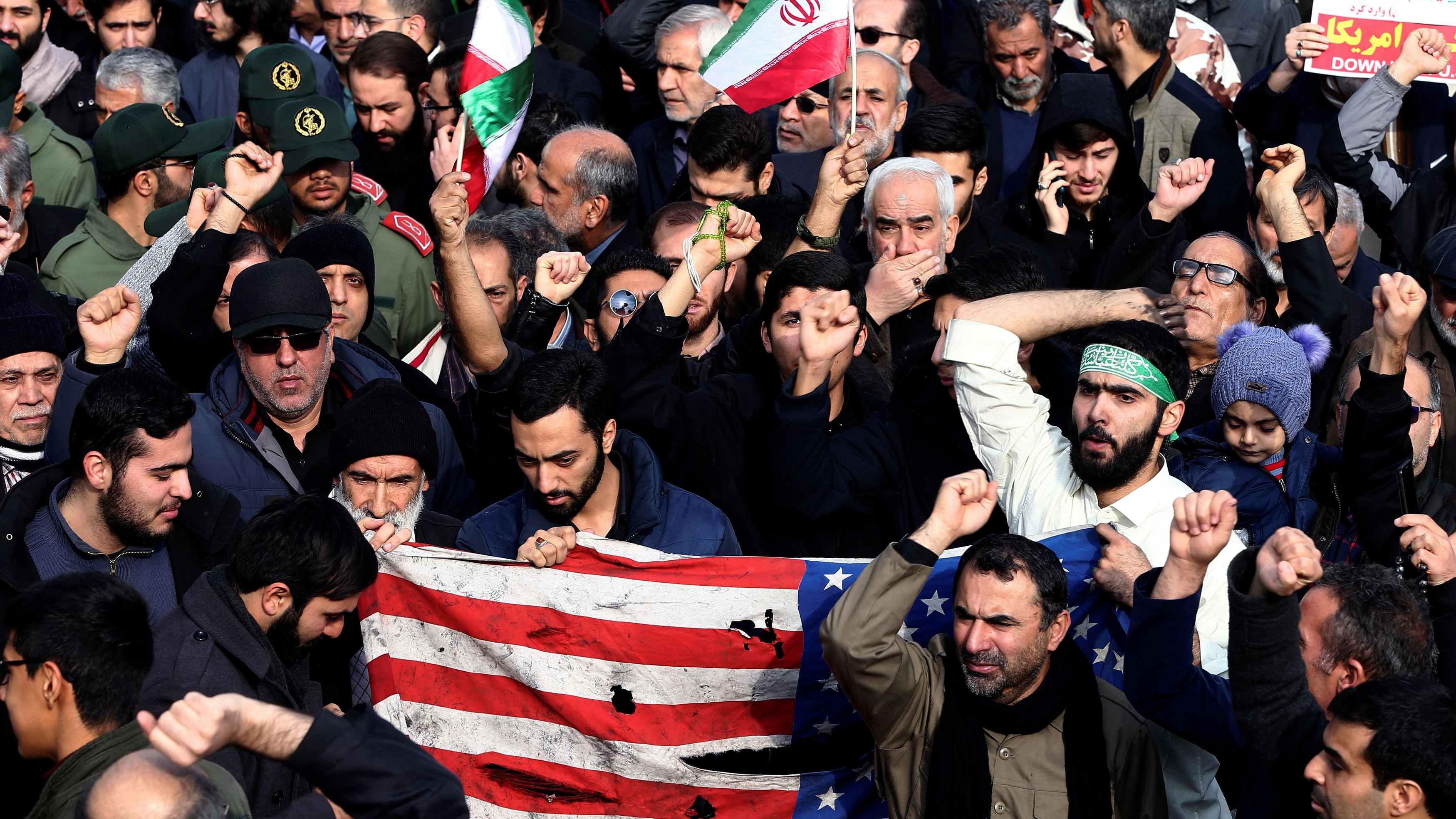
Demonstrators attend a protest following the assassination of Iranian major general Qasem Soleimani, in Tehran, Iran, January 3, 2020. /Reuters Photo
Demonstrators attend a protest following the assassination of Iranian major general Qasem Soleimani, in Tehran, Iran, January 3, 2020. /Reuters Photo
Earlier, Foreign Minister Javad Zarif described the killing as "an act of international terrorism."
Tens of thousands of protesters in Tehran torched U.S. flags and chanted "death to America".
What has the global response been?
Iraqi Prime Minister Adel Abdel Mahdi called the strike a "flagrant violation" of a security accord with the U.S., warning it would "spark a devastating war in Iraq." Paramilitary figures in Iraq called on their fighters to "be ready," while leading Hashed member Hadi al-Ameri urged Iraqi lawmakers there "to oust foreign troops.”
United Nations Secretary-General Antonio Guterres on Friday expressed deep concern over the rise in tensions in the Middle East, his spokesman said.
"The Secretary-General has consistently advocated for de-escalation in the Gulf. He is deeply concerned with the recent escalation,"said Farhan Haq. "This is a moment in which leaders must exercise maximum restraint. The world cannot afford another war in the Gulf.”
China urges the U.S. to exercise restraint
Is the killing Soleimani a 'declaration of war'?
China's foreign ministry spokesperson Geng Shuang said on Friday the country consistently opposes the use of force in international relations, adding that peace and stability in the Middle East must be upheld. China urges relevant sides, especially the U.S., to exercise restraint and refrain from any actions that might escalate the situation, he added.
Differences should be resolved through dialogue and consultation, Yang Jiechi, a member of the Political Bureau of the Communist Party of China Central Committee, said on Friday in a phone conversation with U.S. Secretary of State Mike Pompeo.
European nations, including France, Germany and the UK, have urged Trump to deescalate tensions.
Hamoud Salhi, a Middle East politics expert, told CGTN that the raid is more in line with Trump's style of leadership.
"It's an act of war," Salhi said, adding that the U.S. President might not have thought about it that seriously "other than seeing it as an cowboy act or something to benefit himself or create or add to that persona that he seems to project all the time."
01:07
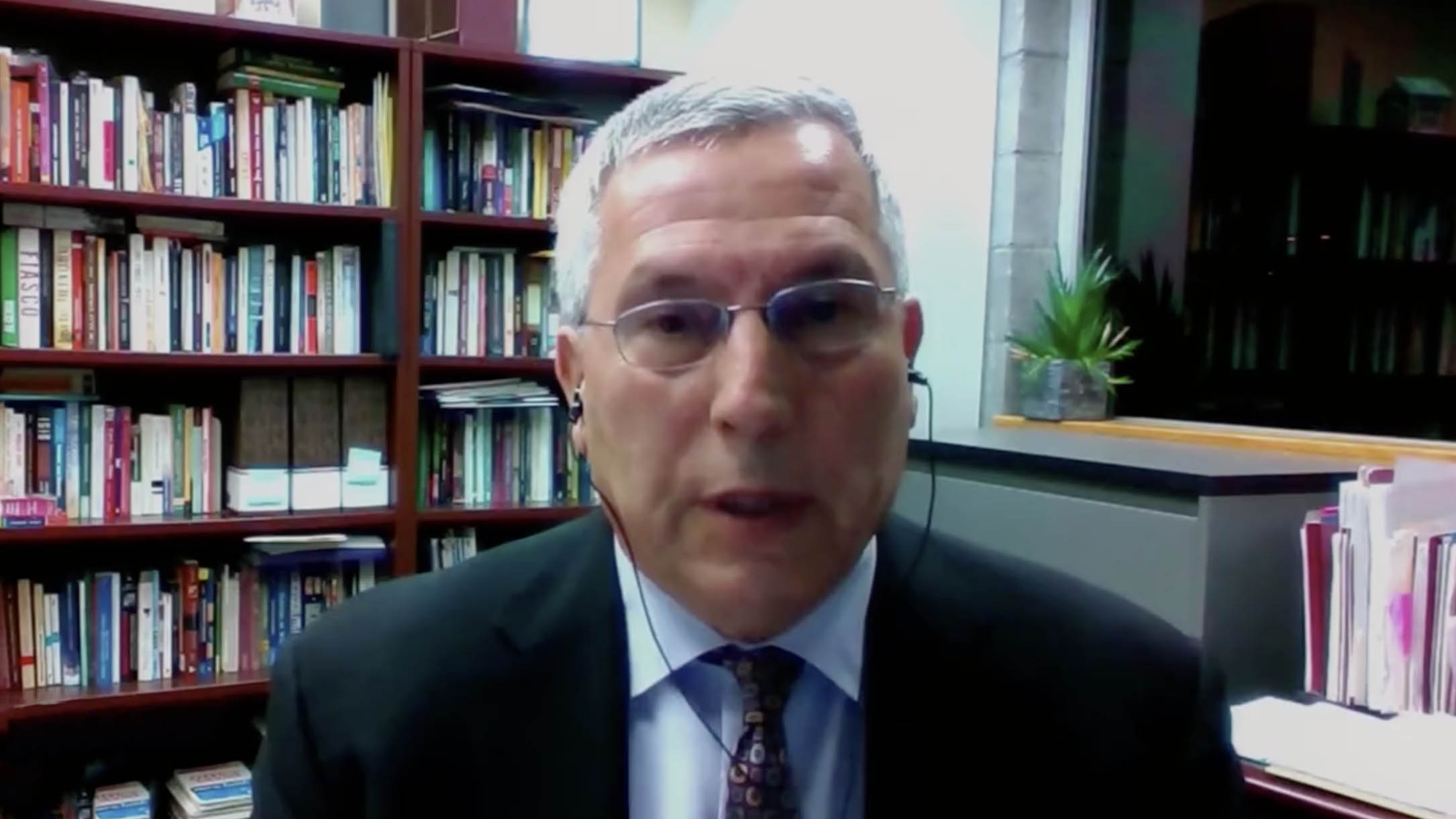
Seyed Mohammad Marandi, dean of the Faculty of World Studies, University of Tehran, told CGTN that Soleimani is a hero in combating extremists and ISIL.
"General Soleimani has many people around him who can carry on his work in defending Iran and in defending the region against the extremist groups that the American helped to create and the chaos that the Americans helped to create," he said.
03:01
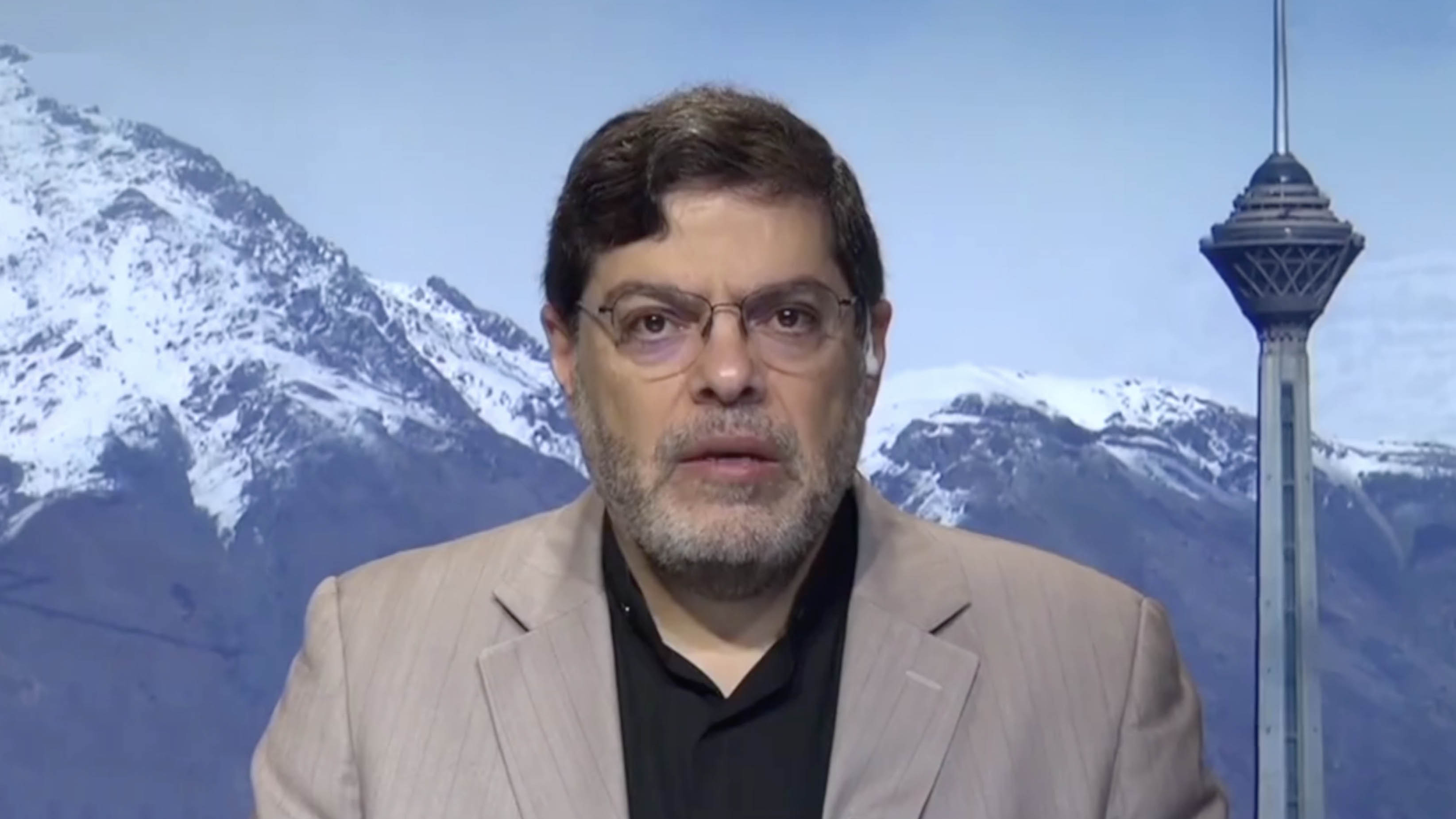
"What the Trump regime has done is that not only have they enhanced his popularity and made the Iranian population much more determined than before, as we have seen on the streets and the cities of Iran throughout the country over the last day, but also the Americans have inadvertently united the overwhelming majority of the Iraqi population," Morandi said.
He said United States has turned the tide of its propaganda against itself in Iraq and thus diminished the U.S. position in the country and angered the Iraqi population.
"Everyone else is extraordinarily angry with the U.S.' impunity, with U.S. aggression in Iraq," he said. "So, I think this was a foolish act by the United States. The Iranians will be forced to punish the United States because it is an act of war, and the Iraqis will feel forced to punish the United States because it is an act of war against the deputy commander."